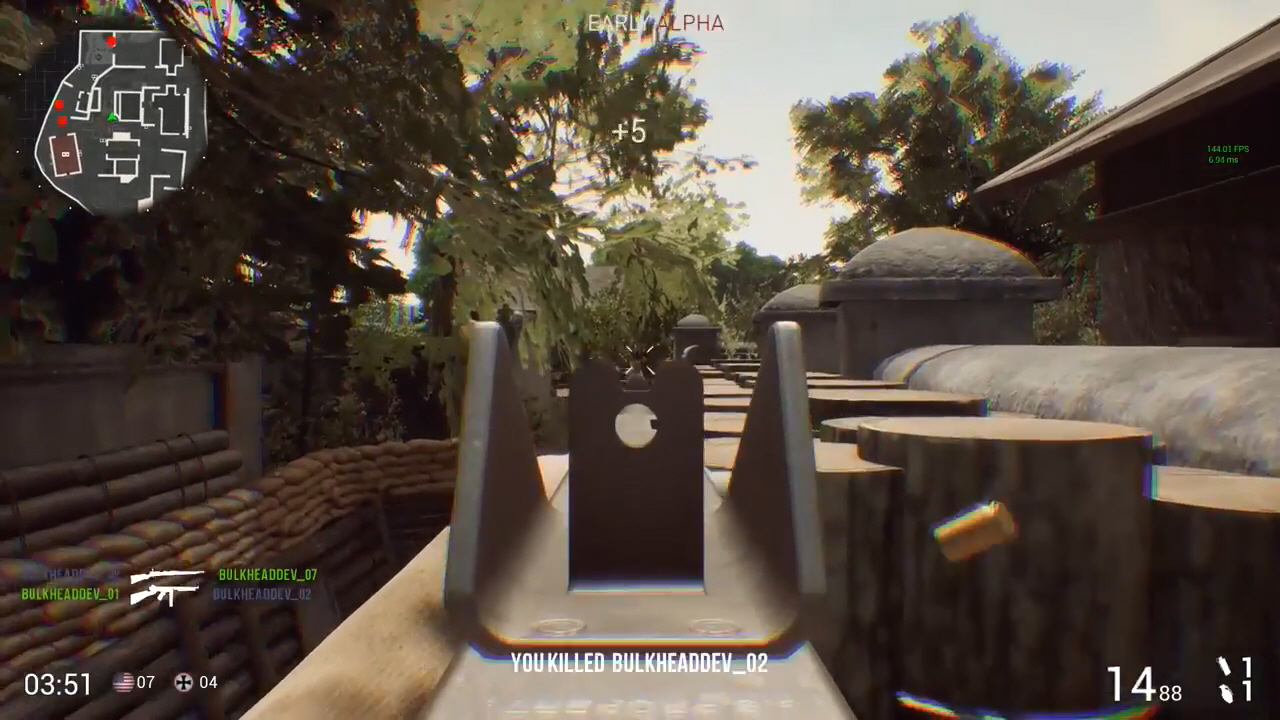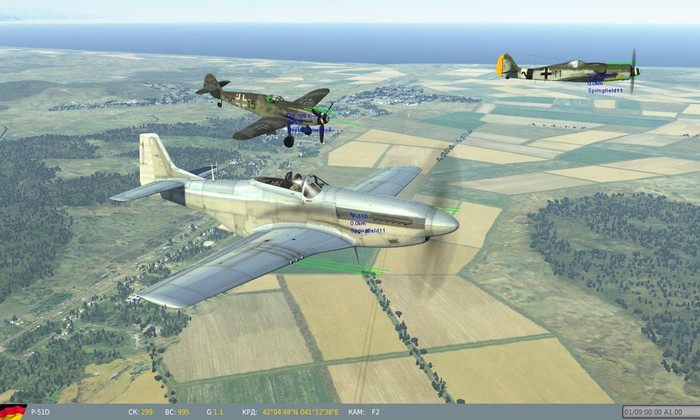World War II has always been a popular setting for video games. It’s not hard to see why. The good guy/bad guy line is obvious, there’s a good mix of a modern and old-fashioned atmosphere, and everybody knows the history, it doesn’t need to be explained. It’s probably no coincidence that World War II was also popular in Hollywood during the war’s height in gaming as well.
We saw in our last Cliqist of History article that of 12 successfully funded history-based crowdfunding campaigns, seven are based on World War II. Of the nine failed campaigns, only three shared that setting. So why do so many World War II games succeed, and why are there so many of them in the first place?
For that, we’re going to have to look at a few of these campaigns individually.
Battalion 1944
Battalion 1944 is simplicity in its purest form. It’s an online, World War II shooter reminiscent of Call of Duty 2. That’s it, the end, job’s a good’un. While that can sometimes limit or hurt a campaign, developer Bulkhead Interactive used this simplicity to their advantage. They pitched Battalion as the return of the small-scale, World War II online shooter, something that’s been missing from gaming for years with the advent of modern and futuristic conflicts taking over the gaming landscape.
Battlefield 1 and Call of Duty: WWII these days would make such a campaign seem silly and would likely cripple it, but Bulkhead had a few other tricks up its sleeves. It had a ton of gameplay to show, all of which already looked super polished and professional for such an inexperienced and young team.
DCS WWII: Europe 1944
DCS WWII: Europe 1944 had a similar premise. It is a World War II flight simulator, something that absolutely doesn’t get much attention these days. For Ilya Shevchenko, that was just about enough, and his 14 year history within the industry developing such games certainly helped. Unfortunately, DCS WWII: Europe has dropped off the radar, with the last Kickstarter update coming in April 2014, although another developer who worked with Shevchenko is trying to pick up the pieces and deliver something; but don’t hold your breath.
Uboot
Uboot meanwhile was playing with a different hand. Developer PlayWay wasn’t pitching it as a return of a classic genre or some such nostalgic throwback, instead, they were pitching an entirely new type of game. Uboot is a World War II submarine simulator in the guise of an open world sandbox survival game, with gameplay mechanics similar to Fallout as the page reads.
You’re in charge of the sub, and it’s up to you to decide when your men eat, sleep, and drink. You have to decide when to go to port, when to resupply, and when to engage in combat. All of this is going on during World War II, so you have to juggle battling ships and dealing with your men’s stress and potential cowardice.
Plenty to Choose From
Those are just three crowdfunded World War II games. There are plenty of others like Days of War, Enlisted (whose developer is funding it on their own website), and Battle of the Bulge. The only three that failed – Iron Wings, Panzer Grounds, and Harmony – all had poor campaigns attached to them. They lacked gameplay footage, screenshots, had poorly written summaries or some combination of the three. They failed not because they were World War II games, but simply because they were bad campaigns.
I do think the World War II setting gives these developers a leg up on other historical eras. It’s a well-trodden time period in the land of video games. Developers don’t have to waste time setting up the backstory, and it provides an obvious good guy/bad guy dynamic for many to connect with. Look at a failed Kickstarter from another historical era, say, Antinomy. The developers dedicated most of the summary to explaining the time period, not the game itself.
World War II games dominated gaming throughout the 2000’s, so much so that the market was oversaturated. They’re starting to come back now, such as Call of Duty WWII. Gearbox has been teasing a return to Brothers in Arms for years. But as ever, the drive to make the future more like the past is led by crowdfunding. With so many successful crowdfunding campaigns, more more AAA World War II games should come as a surprise.
It’s not the setting itself that sells these games though. All of the successful campaigns had at least one of two things going for them: unique ideas or nostalgia. The failed campaigns had only tired tropes going for them. What sells is a good game, first and foremost – which isn’t to say that good games always sell.
Cliqist is partnering with Games of History to provide a series of articles looking at history-based video games on Kickstarter. Games of History is a YouTube channel run by Cliqist Executive Editor Josh Griffiths, examining the accuracy of history-based video games.






